Autumn poetry fills the air as we revisit best poems of September 2021
It is a month for celebrating poetry and we are doing so in two ways.
First congratulations goes to Provincetown poet Cynthia Bargar, whose memoir in poems, "Sleeping in the Dead Girl's Room" (Lily Poetry Review) took a Poetry Honors prize Sept. 6 in the 23rd annual Massachusetts Book Awards.
Martha's Vineyard resident Geraldine Brooks’ novel "Horse" (Viking) earned an Honors in Fiction. Based on a true story of a record-breaking thoroughbred, "Horse" is a "sweeping tale of love, art, greed, horseracing, and race relations," according to a press release announcing the awards.
Those two local authors and a dozen others will be recognized Oct. 24 in a ceremony at the statehouse.
Also this month, we are resharing the best poems from Cape Cod Poetry 2021, along with a few words from the poets.
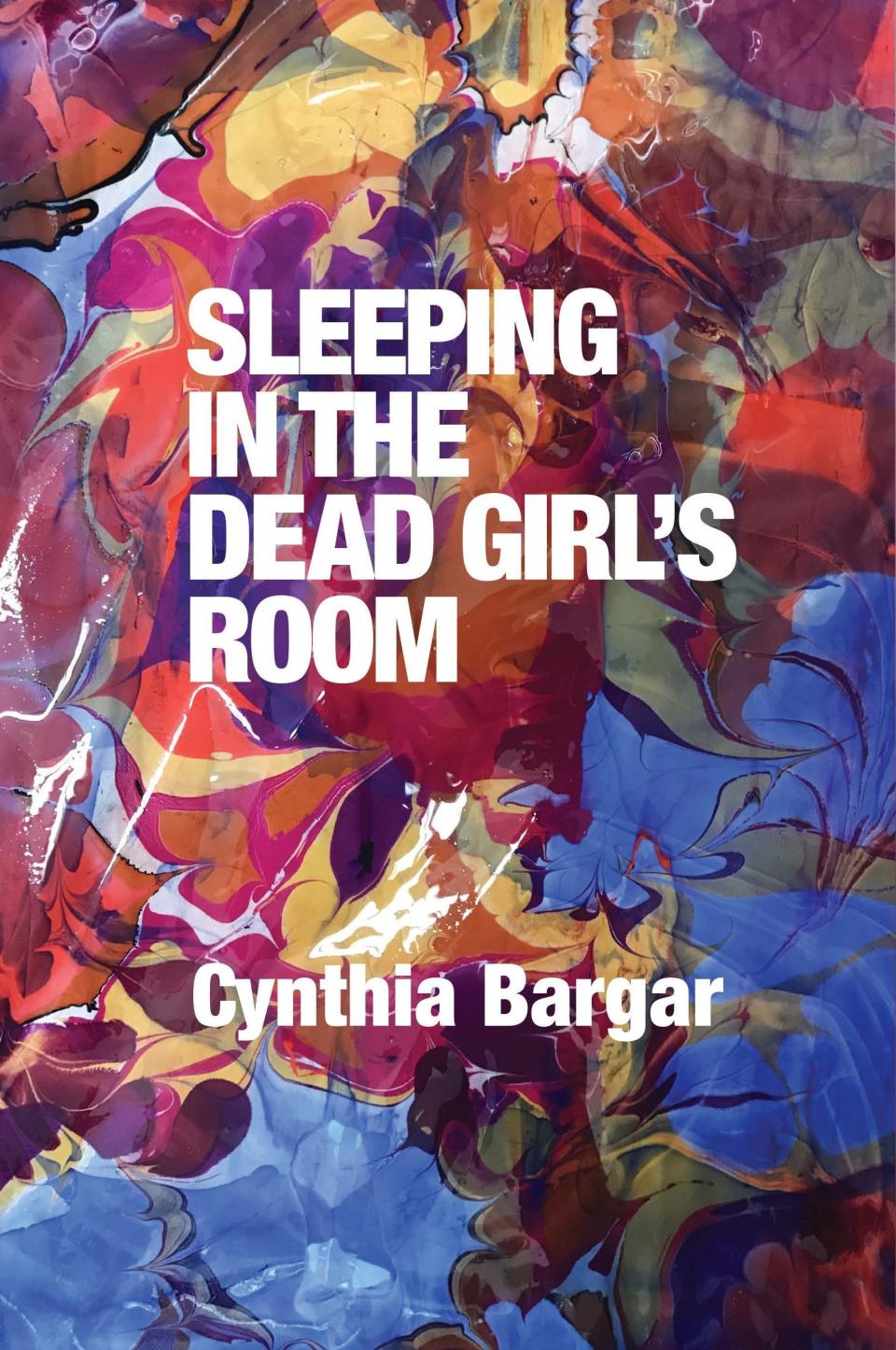
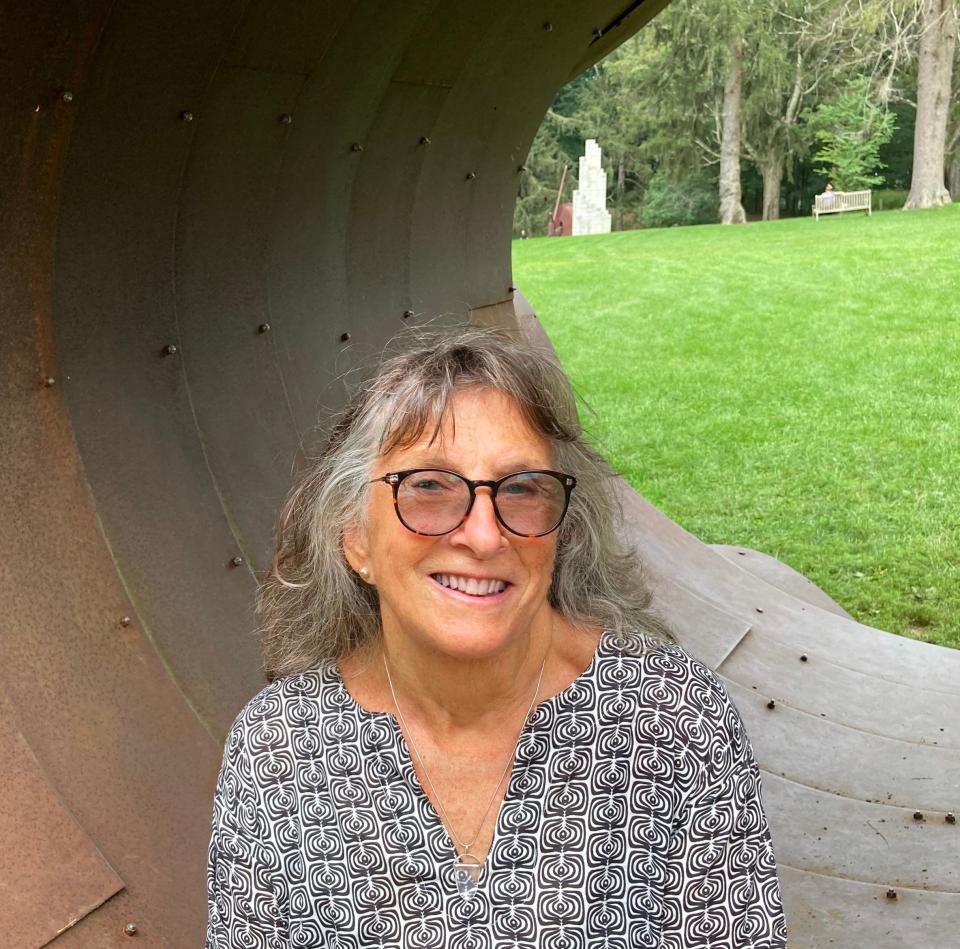
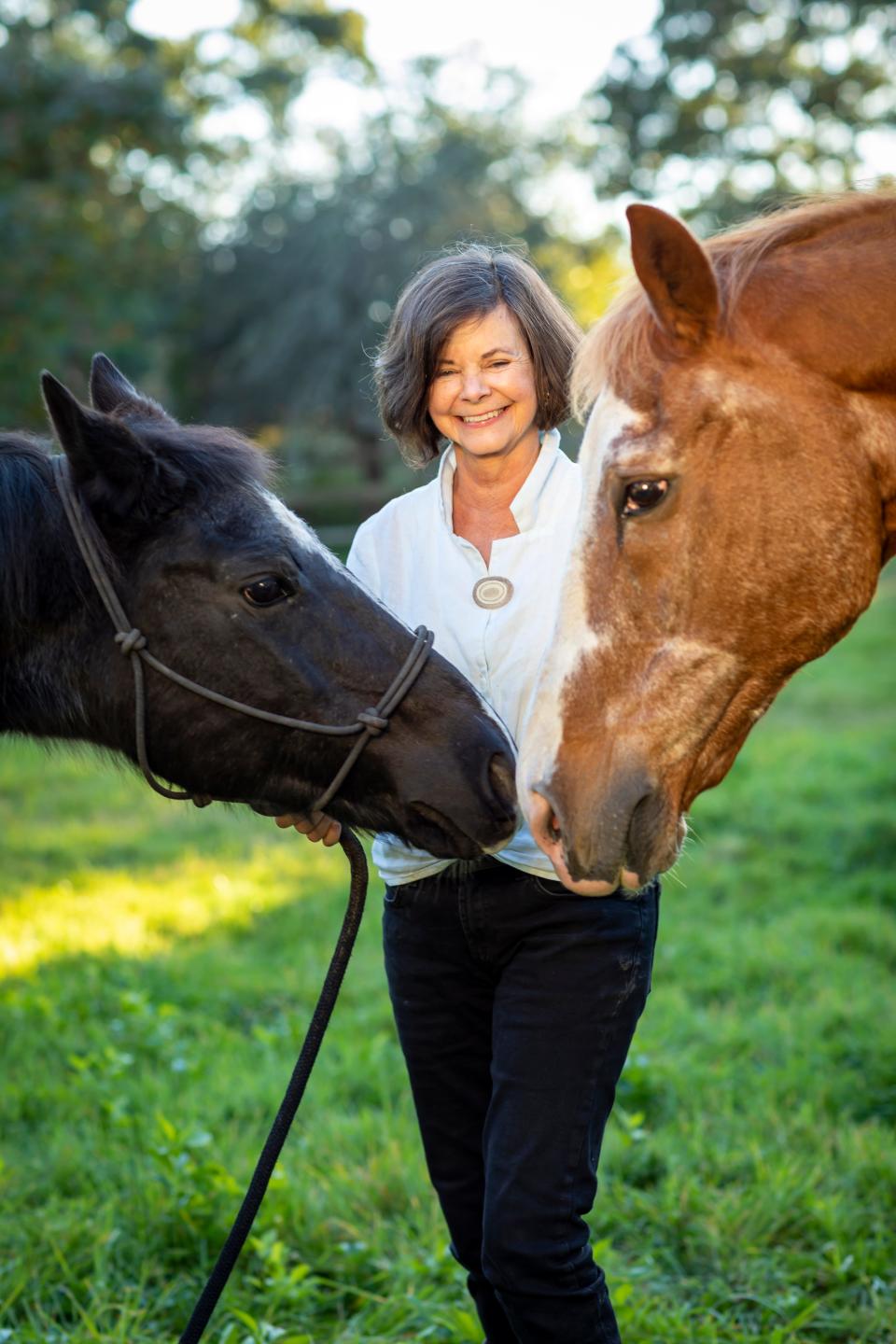
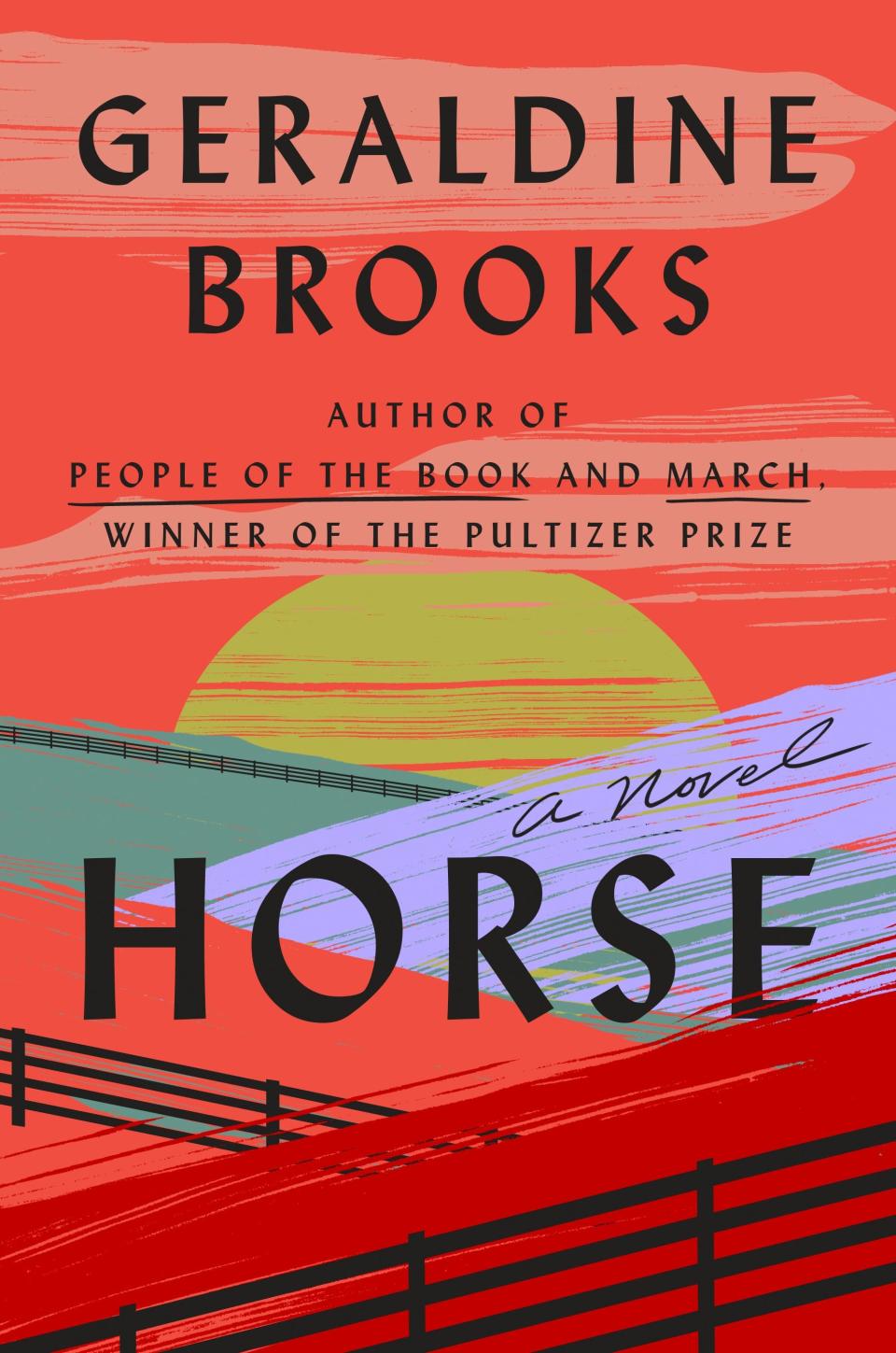
Whether you are an amateur poet or a published one, we encourage you to share your unpublished poetry with Cape Cod Poetry. It will be judged by a team of professional poets, with the winning poems published in the Cape Cod Times on the third Friday of each month. See the box at the bottom of this story for instructions on how to enter.
Here are poems that won the most points from the judges in September 2021.
Mary Ann Larkin writes:
"I didn’t choose to be a poet, but I gradually made a commitment to it in Cleveland, in the 60’s, where people didn’t pay much attention to the outside world, so I founded, with four other feminist poets, the Big Mama Poetry Troupe, and we went on to perform from Chicago to NYC, of course in leotards.
"Poetry shows me what I am feeling — a surprise enabling me to live in more than one dimension — a kind of sacred space constantly expanding."
THE PICNIC
By Mary Ann Larkin
When the war was almost days from over,
Mother made a dry potato salad — no mayo,
and told us, your father’s coming home at noon today.
We’ll have a picnic, and we did — at North Park.
There was a stream I wanted to fish in.
I found a stick, but no hook or string
but that’s not the point of this poem.
My parents were sitting
on the bench of the picnic table,
their backs against it,
their legs stretched out.
They were smoking.
They were very still.
And I could tell, we kids
didn’t exist just then.
Something big
I neither knew nor felt
had gotten hold of them.
Some big bird of gratitude
and peace.
***
Patric Pepper writes, "In the fall of 1970, all my college friends were artists of some kind. I had to do something. So, having loved poetry in high school, and reading a lot of Beat poets at the time, I just had to write poetry. An English teacher told me I had a knack for it. Poetry has stuck with me ever since.
"I believe human reality is a kind of poetry we create, as persons and societies, for ourselves and for others, so that we may exist."
From Emptiness the Wondrous Being Appears
By Patric Pepper
As vacant as we imagine the bright white clouds to be
this bright blue day, and as flawless,
the wild turkeys, on the move,
roam through the yards of our village.
We count them,
12, 13, 15, maybe 16,
if that’s a baby wandering along
the stockade fence behind the roses?
Their question mark necks pick the ground
for ticks, berries, seeds, as the big one
guilelessly casts an unoccupied glance at us:
Earth staring back at us.
Unbounded as the buffalo that once upon a time
browsed the Plains, Texas to Manitoba, the turkeys
pluck their way, move on, part the vast airs
across the road to Andy’s and Laura’s front yard.
***
Chuck Madansky writes, "I started writing unrequited love poems as a teenager. Not much has changed since then, except that the love is now requited. Although I was a disinterested student of English, my poetry writing took on a life of its own. It became the best way for me to remind myself of what’s most valuable — kindness, beauty and wonder, wherever they are found — and they are to be found everywhere."
Rank and Happy
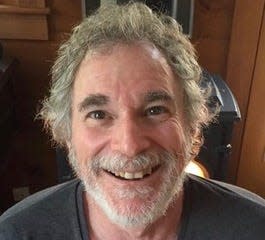
By Chuck Madansky
My cardiologist doesn’t understand me.
When I say my heartache started as a tickle,
she isn’t thinking of the early Christian masters
who directed us to notice what happens
in our bodies in a state of prayer.
My intuition, this poem, whatever
is left over after letting go — call it
faith — is the heart. I’m due to die
in five years, she says, the weight
of her intelligence undeniable.
This constant presence — a two
out of ten — may be the only thing
my body can do to keep me
focused on my salvation. After all,
we die, and I’m done pretending
that I won’t. Still, morning and night
I meditate — what I actually am
so much larger than the motley
masquerade of my thoughts — a grain
of sand on a beach of being.
Here is what I know: this morning
the fog would not leave the pond
until almost noon. By then, our dog
had led me through the woods
and bathed in mud, rank and happy.
***
Barbara Boches writes, "Poetry became both respite and challenge when my children were young. Trying to write opened a mental space for me outside of motherhood — as did reading poetry. I began by writing lines in my head while at the playground, read poems in a Norton’s Anthology when I could and went on from there.
"Poetry serves as meditation, therapy, contemplation and connection to nature. It is not an escape, as I first thought, but examination and, occasionally, reconciliation."
On Cape Cod Bay
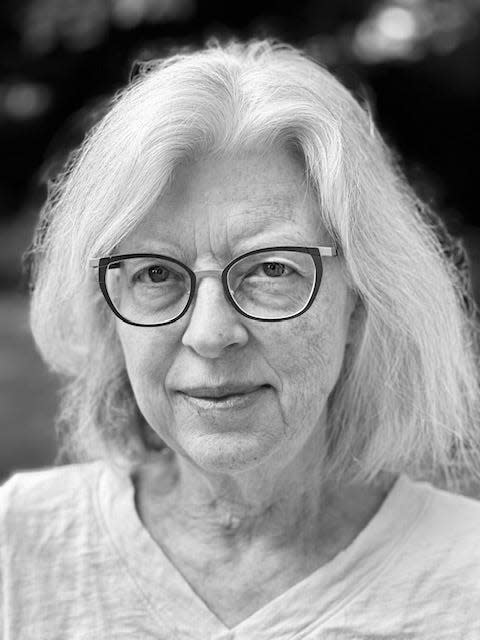
By Barbara Boches
for Rev. Richard Leeds Payne (1933-2020)
Boston Whaler and dinghy kiss, mooring
lines cross, swish and clap. Balmy
bay whispers, Nothing
to fear to a boy in pontoon dinghy as Gramps
bows over bilge pump and whistles, grace
will lead us home. The reverend’s
grandchild fishes — a late
blessing for our beach
tutor of tidal flats, sage
of sea worms and sea. The four-
year-old idly draws on a rope, pondering shark
shaped gummies, lobster
suckers from the antebellum
church General Store. The little boat
and he float out. No
alarm, no shout — too sure
of the old man who pivots, stops
mid-note, to Hey! and scrambles
over side rail. Weathered arms
thrash before turning back to fiberglass
Lazarus, to grasp a dangling
line, his cries blown
away from the jetty where kids catch
crabs in crevices, from those on blankets beguiled
by phones or sleeping to ballyhoo
of gulls and waves. The sea
should win — old
man, young boy: easy pickings. The pastor lays
back his head to object to his God in shifting
wind. Not the boy, his
yell more outrage than supplication. Often, he’s
counseled God can say
no — though not today, not
to the waking sunbather who bolts
up to sing for her
father and son.
***
Stewart Pattison writes:
"My English teacher gave me a simple rule: “If it can be written as a paragraph, it’s not poetry. I began writing poetry in the 1990s; however, I did not share my writing beyond family and friends. When I retired to the Cape, I began to find a voice.
"Poetry represents the encounter of the outer and inner worlds. It requires both rational and intuitive faculties and creates beauty when it integrates the two."
October 4
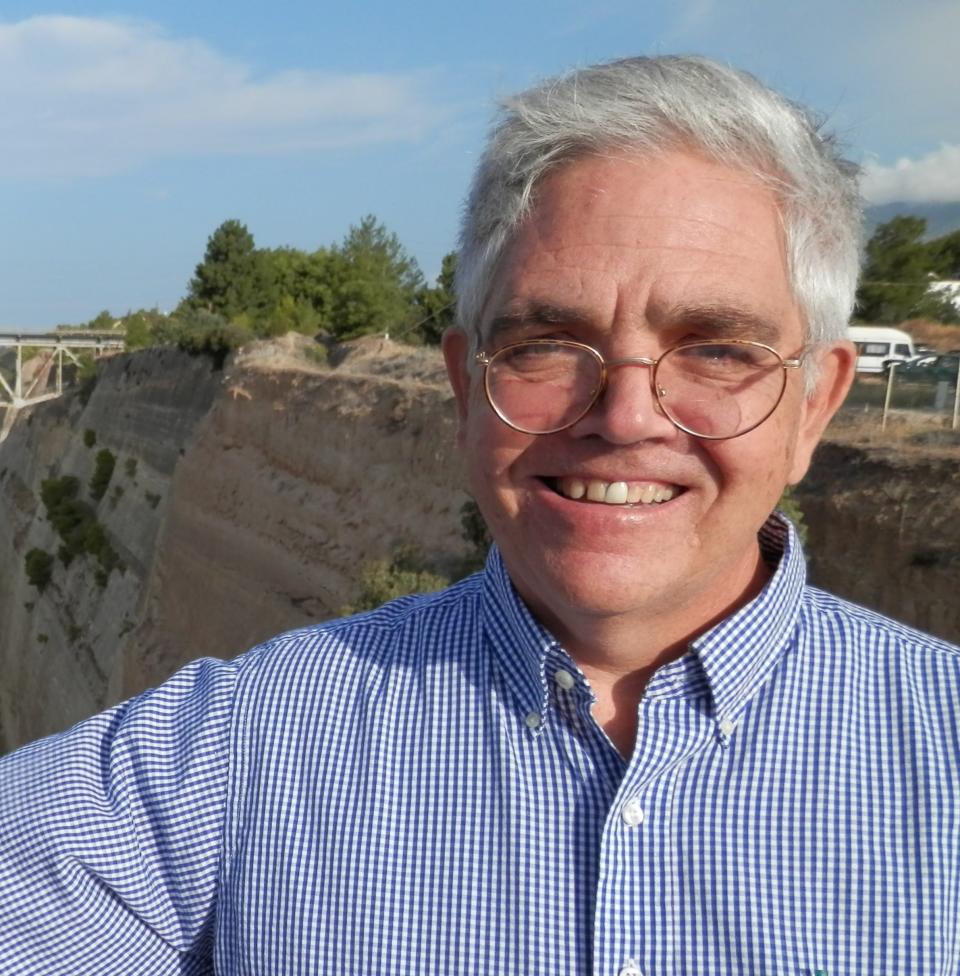
By Stewart Pattison
The first day too cold to swim;
Windows open to the cooled damp breeze
Before the wild swans and buffleheads come
I welcome the herald of the dying season.
No leaves have turned, though acorns pelt the eaves.
Certain as death the flint-hearted frost
Will wither the fair-weather fronds leaving
Only pumpkins, Indian corn and (fool) hardy mums
In the expanse of darker days.
How to inhabit these vesper times —
This conflicted season with its final fearful resolution?
Can there be seasons within seasons to modulate and
Mediate the regression from breath to earth:
A balmy recollection of what was given and will,
Perhaps tomorrow, be withdrawn; permitting
An immersion in the chilling waters —
An initiation into winter’s great silence?
***
Ed Meek writes:
"I edited a Literary magazine in high school and college and Paul Jenkins and Joseph Langland, college professors, encouraged me to write poetry.
"I enjoy the way poetry zeroes in on concepts and the natural world through the use of sound, imagery in a tradition that goes back thousands of years."
In Memory Of
By Ed Meek
In Wellfleet, the locals like to honor the dead
With benches facing the water.
Sit here in remembrance of the lost
They say. Take in the bay or the pond.
On the harbor is a half-mile walk
With benches end to end.
Most popular among them,
Susan Birenbaum, 1952-2008.
Her name adorns half a dozen plaques.
I’d like to think she was the Scarlet O’Hara
Of her day, a list of young men
On her dance card. More likely,
She was the one who held
The clan together like a rope
Holds a boat to a cleat on a dock.
How to submit a poem to the Cape Cod Times
Here’s how to send us your work:
Submit one poem single-spaced, of 35 lines or fewer per month.
Poems cannot be previously published (in print or online).
Deadline for submission is Oct. 1, 2023.
Submit by email to cctpoetry12@gmail.com.
Poems should be free of hate speech and expletives (profanity, vulgarity, obscenity).
In the body of the e-mail, send your contact information: name, address, phone number and title of poem; then, in a Word Doc attachment, include poem without name or any other personal info, so that the poem can be judged anonymously.
Poets not previously published in the Cape Cod Times are welcome to submit a new poem each month.
This article originally appeared on Cape Cod Times: Cape Cod Poetry honors Mass Book Award winners Bargar and Brooks

